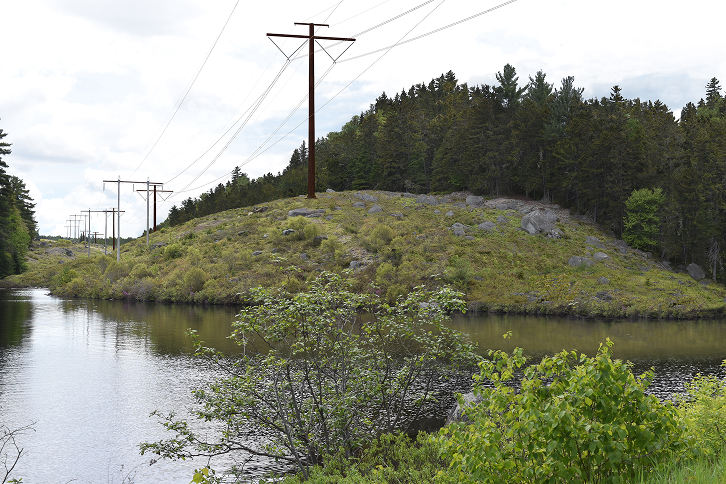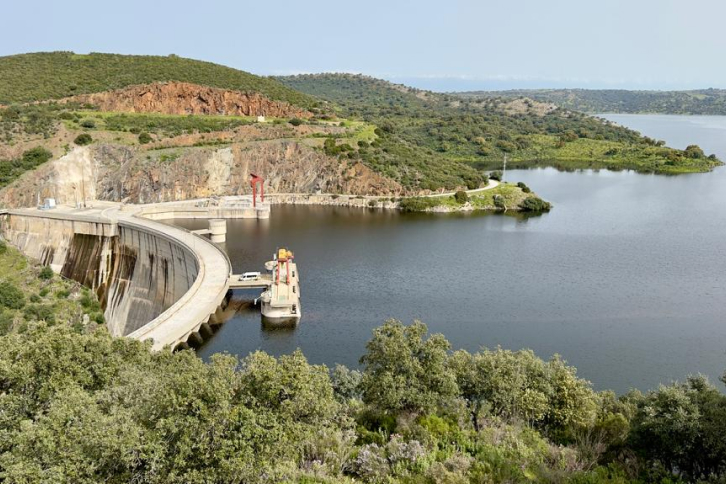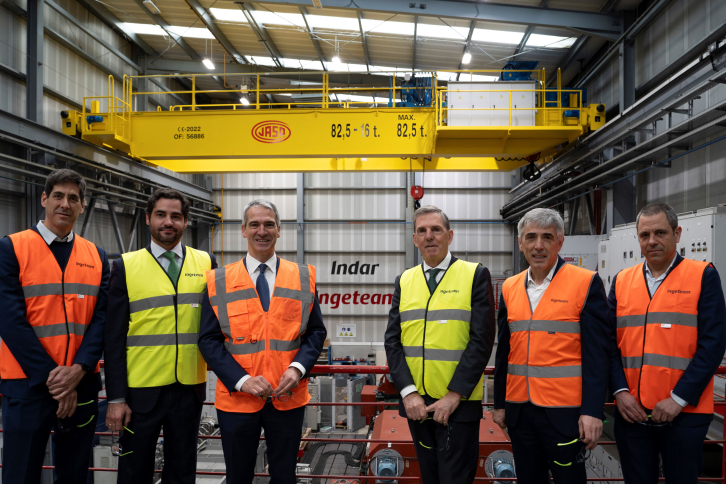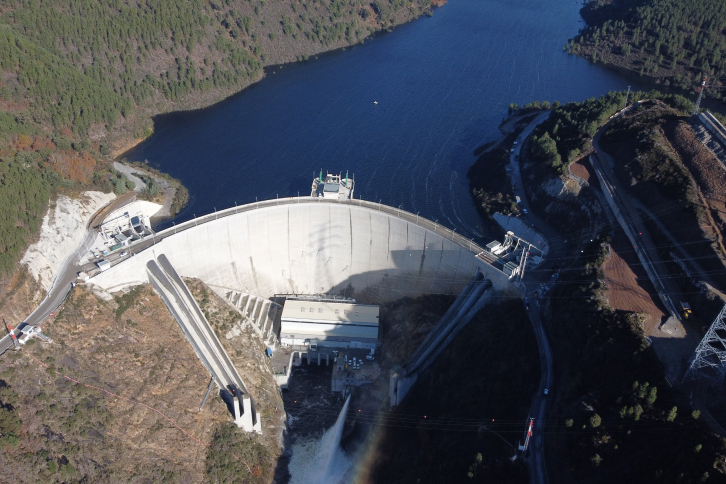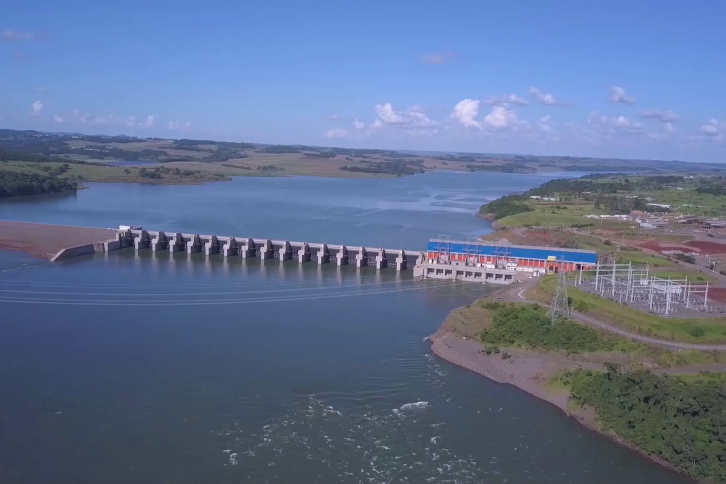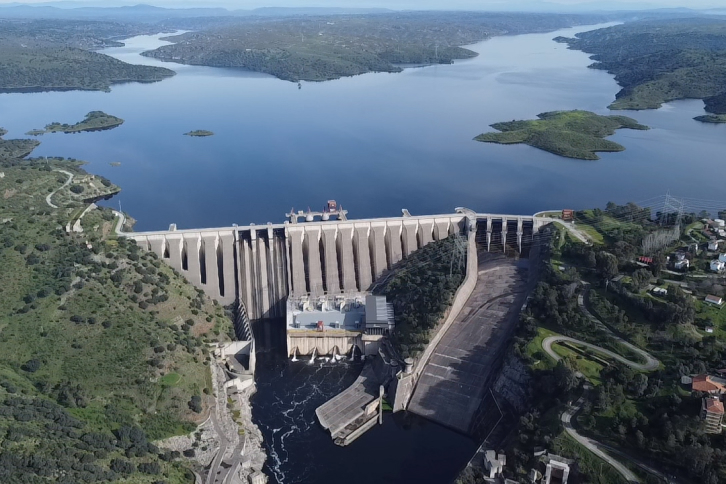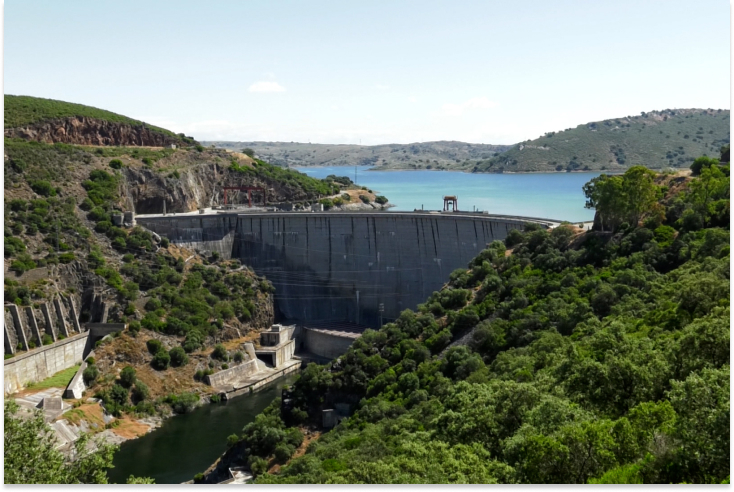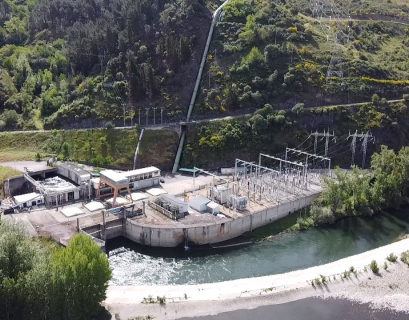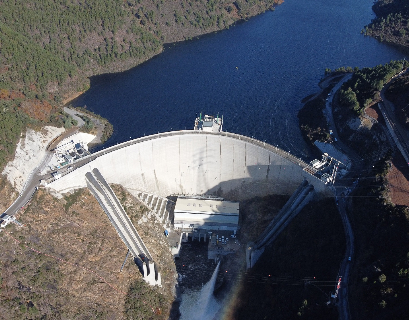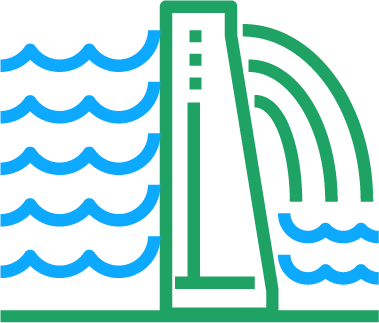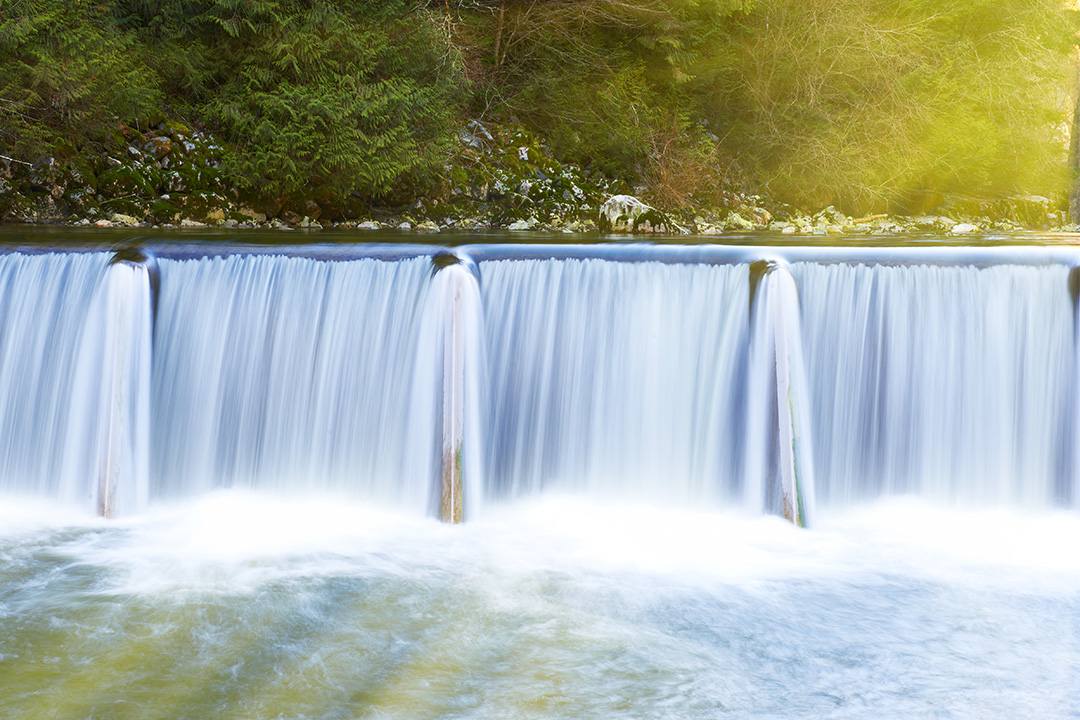Hydroelectric power
Hydroelectric power, key to a greener future
Iberdrola's commitment to hydroelectric technology is an indisputable part of its history, dating back to the very origins of the company.

Iberdrola’s long-standing commitment to hydroelectric technology is deeply rooted in the company's history, going back to its very foundation. With more than 13,100 MW of installed capacity worldwide, the group is committed to this type of plant, which is essential for the energy transition, and remains a leader in energy storage with a capacity of more than 4,400 MW installed through pumped hydroelectric plants.
We promote hydropower around the world
06 February 2025
What is hydropower?
Hydropower, also known as hydroelectric power, is generated by transforming the potential energy existing between two bodies of water located at different altitudes or elevations into electrical energy. In order to take advantage of this difference in height, hydraulic infrastructures are built to extract the maximum potential from this local resource. The result is renewable and clean energy, as it avoids the use of fossil fuels and reduces carbon dioxide emissions, limiting pollution and the greenhouse effect.
Humans have harnessed the power of river currents for centuries, using waterwheels turned by rivers to grind grain and even to make cloth. Hydroelectric power became a source of electricity in the late 19th century, after British-American engineer James Francis built the first modern water turbine. In 1882, the world's first hydroelectric power plant began operating in Appleton, Wisconsin, in the United States.

Advantages of hydropower
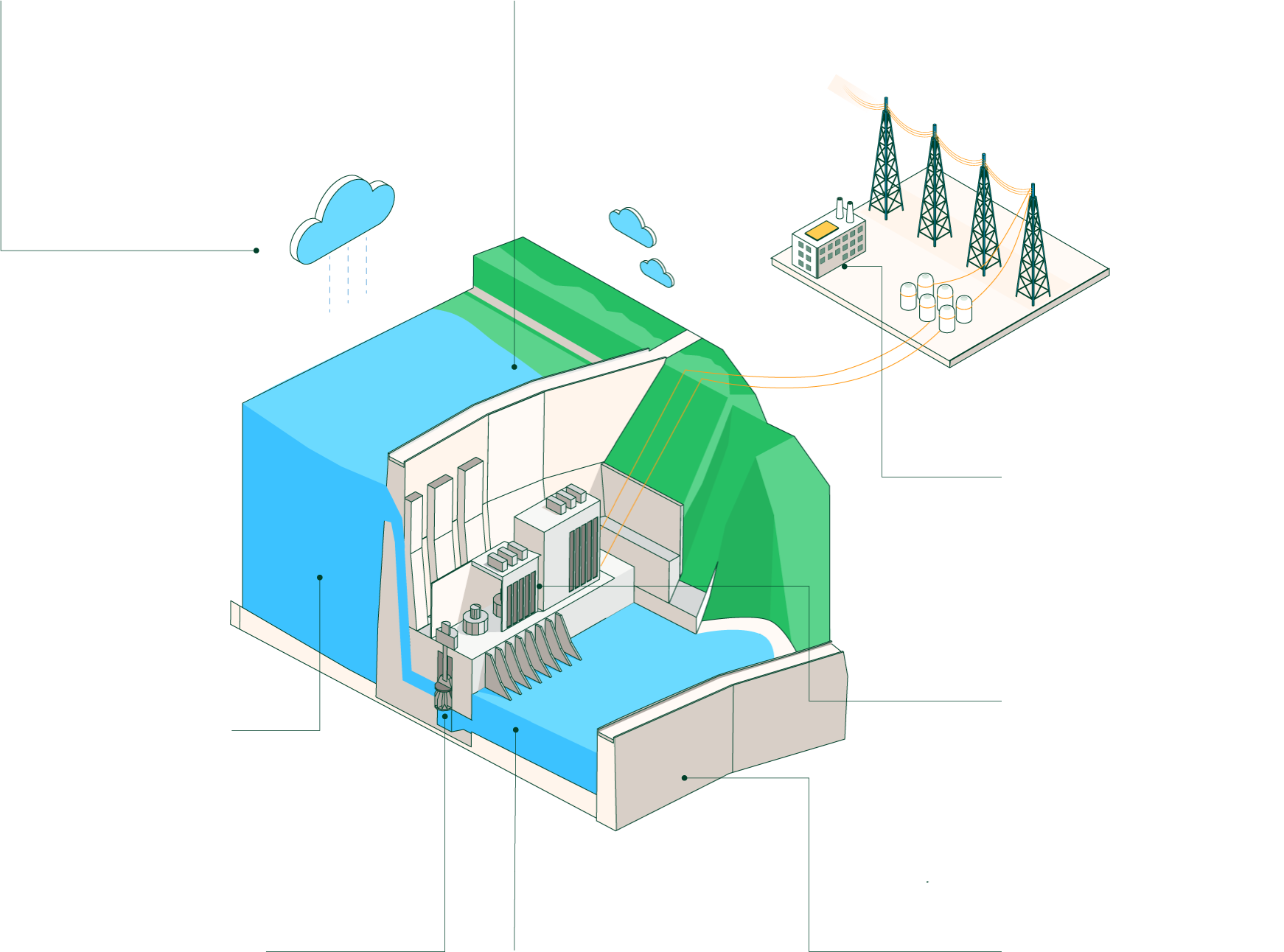
- Reusable resource The rainwater stored from rainfall is used by several hydropower plants connected to each other through reservoirs
- Control function Reservoirs are used to regulate the flow of a river to prevent, for example, dangerous floods
- Storage Pumped-storage power plants allow energy storage on a large scale
- Durable installations Hydroelectric power plants have a long service life
- Economic Initial investment is intensive and operating costs are low
- Complement to other types of energy It is an essential back-up for the development of other renewable technologies such as solar and wind
- Sustainable Harnesses the energy value of water, produces no pollutant emissions and contributes to reducing greenhouse gas emissions
- Flexible Enables rapid response to variations in demand
Main types of hydroelectric power plants
Depending on their functionality, hydroelectric power plants are classified as follows
How does a hydroelectric power plant work?
Hydroelectric power plants convert the potential difference of water into electricity by transferring it between two points at different heights or elevations.

- Dam The dam across the natural river course holds back the water to form a reservoir. The potential energy of the flowing water is then converted into electrical output
- Water behind the dam flows through an opening and down a pipe called a penstock
- Potential energy is transformed into kinetic energy as the water flows through the pipes
- Turbine When it reaches the machine room, the water causes the turbine blades to spin, transforming kinetic energy into mechanical rotation
- Drain After giving up its energy, the flow of water drains downstream through a spillway
- Electricity generator The turbine shaft is attached to the electricity generator, which converts rotational energy into electricity
- Power lines
- Transformer
- Filtering grilles
- Pressure pipe
- Shaft
- Flowing water
- Water used for other uses such as irrigation
Pumped-storage hydropower plant: the key to energy storage
For years, the energy sector has been exploring improvements to balance the supply of energy that comes from renewable sources, dependent on natural resources such as water or light and their variations throughout the day or year. One of the most innovative alternatives is pumped hydro, currently the most efficient system for large-scale energy storage. This technology is more cost-effective and brings stability, security and sustainability to the electricity system. It stands out for its capacity to generate large amounts of energy with a very fast response time – far superior to the best batteries on the market – and without creating any emissions into the atmosphere. Iberdrola is a leader in energy storage with pumped-storage technology facilities.
This type of power plant has two reservoirs at different heights that allow water to be stored at times of low demand and used to generate energy at times of high consumption to meet the entire demand.
During off-peak hours, when there is less demand, the pumped mode of operation is activated, in which water is pumped from the lower reservoir to the upper reservoir via a penstock and a conduit gallery. During peak hours, i.e. the hours of highest demand, the operating mode is reversed, generating power by turbination of the water available in the upper reservoir.
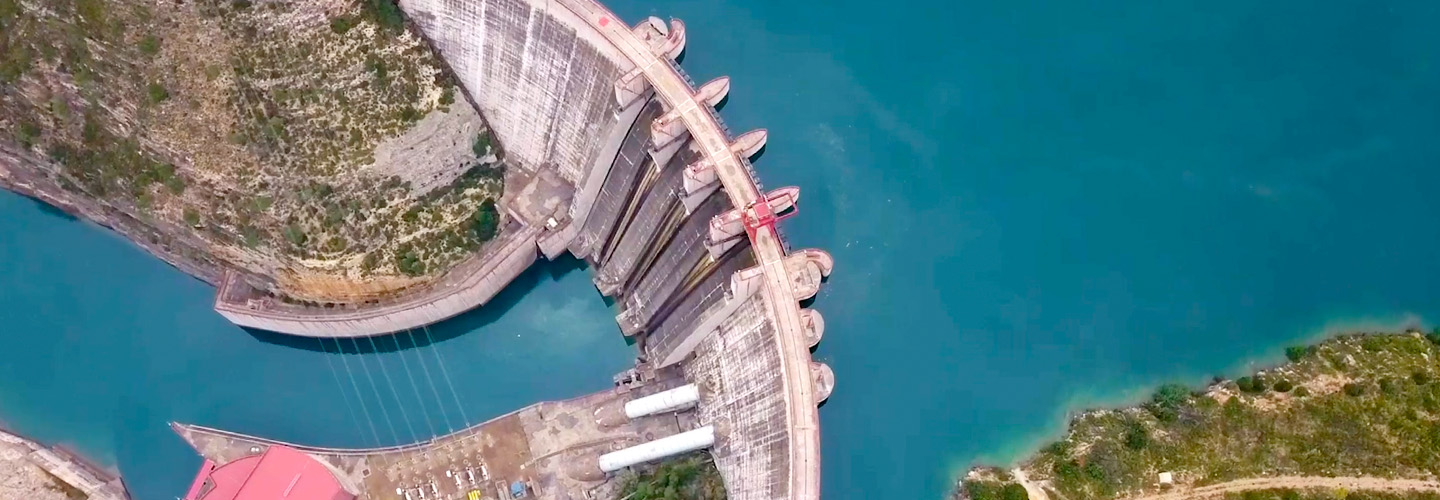
This is how a pumped hydroelectric plant works.
Our flagship projects in hydroelectric power
-
Tâmega: one of the largest hydroelectric projects in Europe
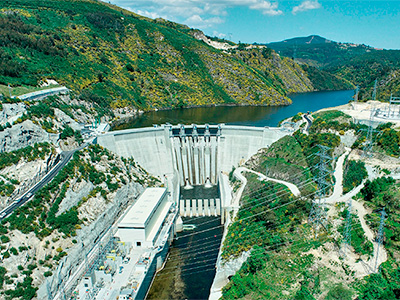
-
Aldeadávila, a unique hydroelectric engineering project in Spain
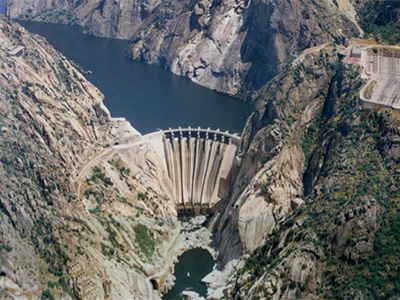
-
Cortes - La Muela, Europe's largest hydroelectric power complex
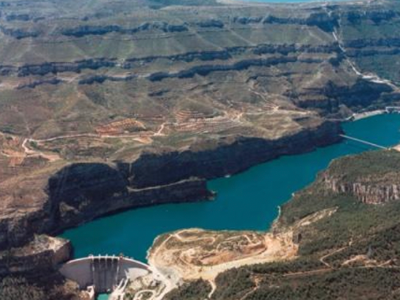
-
Ricobayo, Europe's first large hydroelectric power station
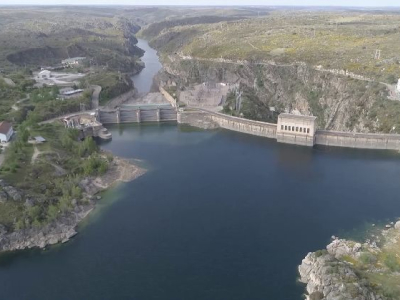
-
The José María de Oriol hydroelectric power plant, key to renewable production in Extremadura
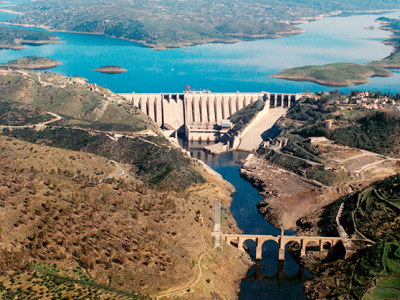
-
San Estevo, the largest hydroelectric complex in Galicia

More about hydroelectric power
Do you know how hydroelectric power plants work?
Hydroelectric power is generated by transforming the power of water into electrical energy. To harness this power, large hydraulic infrastructures are built to extract the maximum potential from this renewable, emission-free and local resource.
What is hydroelectric power and how does it work?Do you know how hydroelectric power plants work?
Hydroelectric power is generated by transforming the power of water into electrical energy. To harness this power, large hydraulic infrastructures are built to extract the maximum potential from this renewable, emission-free and local resource.
What is hydroelectric power and how does it work?Articles from our guest authors





